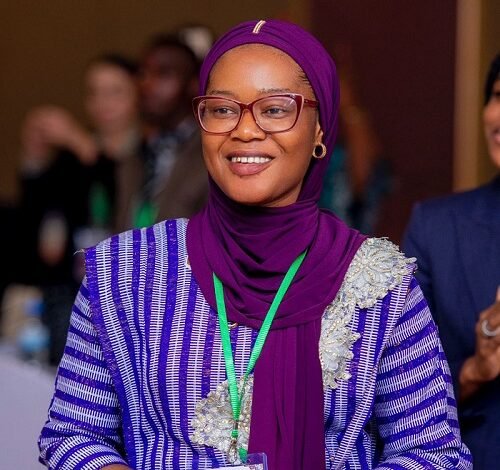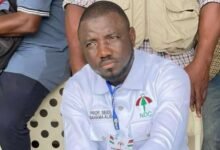Making ‘Herstory’, the politics of ‘representation matters’ and the Affirmative Action Act

Ghana started the year with the ‘herstoric’ First Female Vice President of the Republic sworn into office on January 7, 2025. For over 60 years after independence, our presidency has been led by men. This ‘herstory’ is therefore refreshing to note. However, this new dawn either illuminates our collective ambition or turn it grey depending on the layers of representation our dominant voices echo for women and other marginalised groups in this new government administration.
Making HerStory:
The annals of Ghana’s history have been re-written with the assumption of office of Prof. Naana Jane Opoku- Agyemang to the office of the Vice Presidency of the Republic. Our history and all of history has mostly been recounted in remembrance of men even though the arc of history affects both genders. The critical and sacred influence and significance of our women is often missing even if they had been pivotal in the salvation of our nation.
Yet history is very powerful as it connects the past to the present making it possible to embrace the future with hope and some certainty of success which we deny girls and women. Women like Hannah Kudjoe, Susana Alhassan, Leticia Quaye, Ayaoni Bukari, Rebecca Naa Dedei, Hawa Yakubu among numerous women having played integral roles in Ghana’s politics, are yet to receive their flowers after they have long been gone.
As we navigate this new political landscape in Ghana, with our smiling faces, we need to ask for more with a greater task to centre our activism on collective ‘herstory’.
The politics of representation matters:
The politics of ‘representation matters’ can be rooted in systemic heritage preservation. If not well articulated and utilised, it will become an effective way to create a gender parity mirage. Once in a while, the system gets one woman up there, cap it as inspiration, but use her for more marginalisation frames. Pray, this time, that one woman, lives above the system. That will be the real deal and the wild inspiration for more women to truly feel represented.
This may not be bothering to many Ghanaians but Gender Activists know the vision of their efforts and should continue to guard every ray of light even if the deck is stacked against us. We must also continue to check the flame of performance on collective gender representation in politics and public life by calling out politics that encourages tokenism to ensure the numbers count. Ghana has seen and felt the rise and decline in the numbers of women representation in our parliament over the years while political parties continue to pledge-play women empowerment and representation. Women need to muster the courage to hold political leaders accountable for their promises and uplift the full spectrum of representation. Else, we limp in opposite directions with our efforts and visions.
The Gender, Children and Social Protection (GCSoP) ministry needs to be reconsidered for a cabinet status to effectively deliver on its mandate to ensure gender mainstreaming in all sectors and for the critical empowerment of vulnerable groups. The GCSoP Ministry is a technical one, and a conscious effort must be made to choose individuals with the requisite skill-set, experience, expertise and qualifications to lead the charge with adequate resources.
The Affirmative
Action (Gender
Equity) Act:
Politics in Ghana is dominated by men and they tend to benefit more from the political system therefore wielding systemic and structural power. That’s why gender activism should be more focused on collective empowerment that gets us the representation we need and the time to do that is now with the Affirmative Action Act at hand. From the progressive 30 per cent to 50 per cent ambition of the Act, the new administration should commit to appointing not less than 30 per cent of women to serve the country in various capacities.
Men have enablers mostly as god-fathers and even god-mothers in our politics leaving women with the sustained challenge of who to hold their hand. Young women are starving for political god-mothers and it will be a rare privilege to give them a chance. In fact, it will be a radical revolution to have women in politics prioritise intentional mentorship for other women and girls. Clearly, it will take women themselves to change the matrix in order to achieve the gender parity set forth by the Affirmative Action Act.
From individual groundings to collective actions, women can inspire a democracy with grace and hope for the common and collective good. The clear existence of gendered power dynamics in Ghana’s democracy should awaken women’s agency to dream, accomplish, inspire, mentor, and pay it forward for girls and women in the country.
Conclusion:
The underrepresentation of women in politics and public life is a system that needs remade to ensure fairness and to promote good governance. As witnesses of this new ‘herstory’ in Ghana, we have a sacred duty to tell our unborn generations, that, this was not just about a ‘woman king’ but a grand ‘agojie’ army emerged as well and this can be possible if we take the holy act to ensure there is female familiarity with this administration through the appointments of more women into public offices in line with the Affirmative Action Act.
Congratulations to Ghana’s First Female Vice President, Prof. Naana Jane Opoku- Agyemang and to all the women who played critical roles in the 2024 general elections.
The writer is the Executive Director, FEAD/Gender Activist
BY HIKMAT BABA DUA







